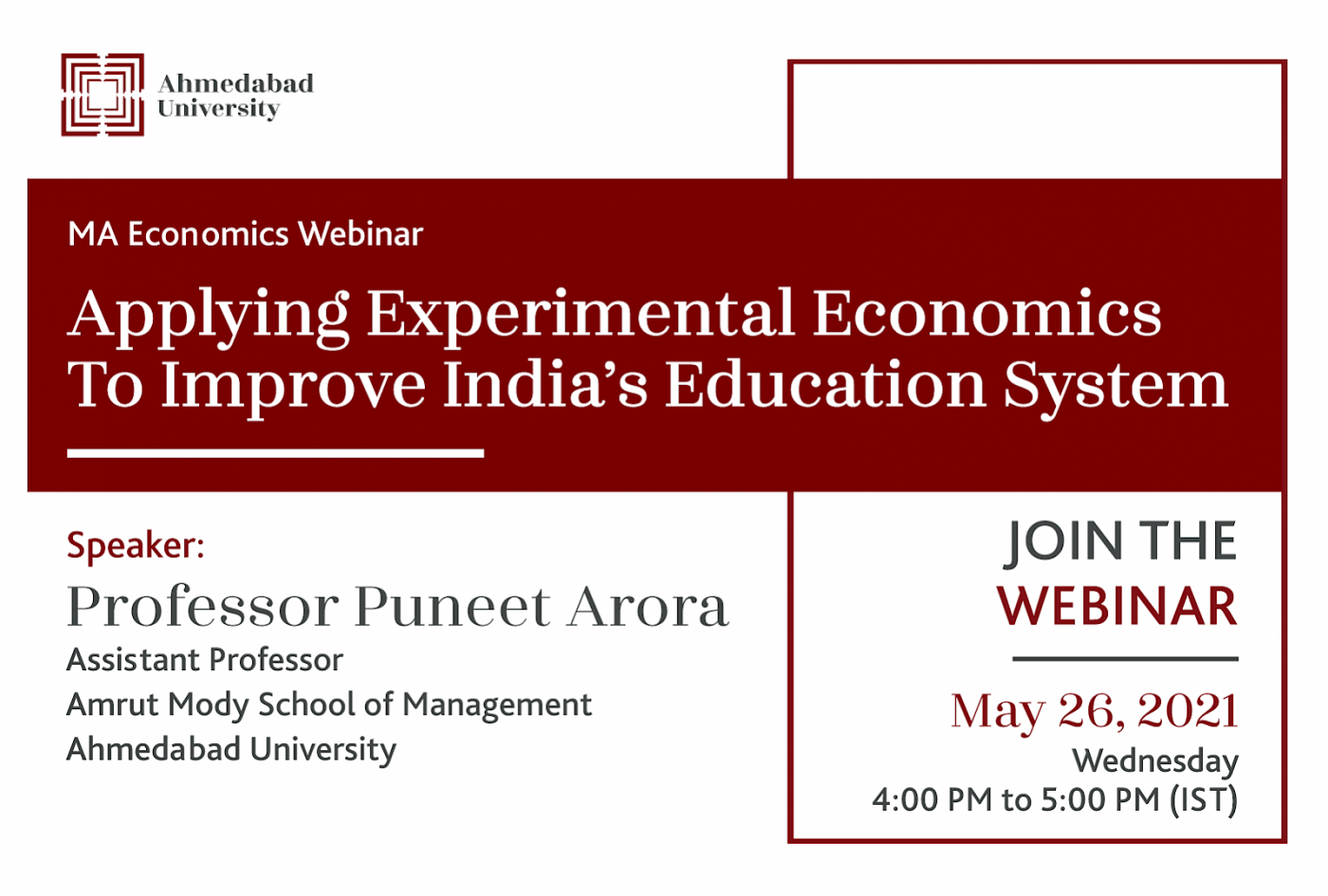Applying Experimental Economics to Improve India's Education System

Ahmedabad University's MA Economics programme aims to prepare students who are theoretically sound and apply the concepts to the real world. As part of our outreach for the ma programme, we will discuss India's education system from the lens of experimental economics.
India's education system faces multiple challenges of low enrollment, high dropout rates and poor student achievement, and seeks to improve these while managing limited budgets. At present, secondary school enrollment rate in India is 74 percent, and among 14-16 years old enrolled in schools, only 77 percent can read a grade 2 level text, and less than 50 percent are able to solve a simple division problem (aser, 2018). Policy makers and researchers have been looking for solutions that are implementable, expandable and sustainable without being too costly. Keeping this context in the background, this lecture will discuss (a) the causal research methods in economics, (b) with a focus for the most part of the lecture being on the experimental method, (c) and its applications geared towards improving the status of education



